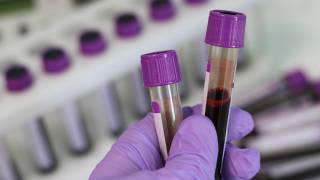HepC Increased 89% in Pregnant Women

The rate of American pregnant women with hepatitis C virus (HCV) has increased 89% during the past five years, according to information from the Centers of Disease and Control (CDC).
This new research means 35 infants a day are now exposed to the HCV disease.
The number of Americans who have been infected with hepatitis C is unknown.
The CDC estimates between 3.4 million to 6.0 million have been infected and that half of those infected don't know they have HCV.
The recent increase in maternal HCV infection appears to have disproportionately affected rural and white populations. The surge in hepatitis C diagnoses was most overt in rural parts of Tennessee and West Virginia, where a drug abuse crisis has been reported.
“We have seen a dramatic increase in opioid use in pregnancy and in the number of infants having drug withdrawal,” said lead author Dr. Stephen Patrick, assistant professor of Pediatrics and Health Policy at Vanderbilt University Medical Center.
“Taken together, this suggests that efforts targeted at preventing and expanding treatment for opioid use disorder may help mitigate some of the increases (in Hepatitis C) we see,” said Dr. Patrick.
Dr. Patrick, who co-authored the study with the Tennessee Department of Health (TDH), reported notable increases in rural counties in Tennessee, and in rural states like West Virginia, which had the highest infection rate in 2014.
This study found the increase in HCV infection is particularly concerning regarding the poor follow-up of HCV-exposed infants. The rate of vertical transmission from infected mothers to infants is estimated at 5%.
A recent study found that only 16% of HCV-exposed infants were appropriately followed, suggesting that infected infants might go undetected.
Because women are not universally screened for HCV in pregnancy, these estimates may not represent the actual prevalence of HCV in pregnant women.
Ensuring that women of childbearing age have access to HCV testing and treatment. The CDC suggests universal screening for women of reproductive age residing in areas with high HCV prevalence. The CDC guide for HCV counseling can be found here.
The CDC has not approved a vaccine that protects people from hepatitis C.
But with treatment, HCV is curable.
Research has produced drugs that completely push the virus out of the body. About 3 months of daily treatment with a “direct-acting antivirals” (DAA) leaves a person virus-free, and with few side-effects.
There are four classes of DAA that combine in different ways to make up the different hepatitis C treatments.
A pharmaceutical product, HARVONI, transformed Hep C treatment as the first once a day therapy. In clinical studies, 96-99% of patients with Hep C genotype 1 who took HARVONI and had no prior treatment, were cured with just 12 weeks of therapy.
The estimated number of individuals living with HCV worldwide has been slashed by 50 percent, according to the WHO report.
According to the CDC, individuals who become infected with hepatitis C may not know they have the disease.
The CDC says hepatitis C is caused by a virus that mutates extremely fast. Immunizing bodies against infection has proven impossible since the viral genome that guides replication inside of a new host is a constantly moving target.
These researchers did not report any conflicts of interest: Carrie Fry, MEd, Harvard University, Cambridge, Massachusetts; Cece Spitznas, PhD, Office of National Drug Control Policy; Fred Croom, MD, Tennessee Department of Health; Amy Branum, PhD, National Center for Health Statistics, CDC; Theresa Scott, MS, Vanderbilt University, Nashville, Tennessee.
Our Trust Standards: Medical Advisory Committee
- Failure to Test and Identify Perinatally Infected Children Born to Hepatitis C Virus–Infected Women
- Increased Hepatitis C Virus (HCV) Detection in Women of Childbearing Age and Potential Risk for Vertical Transmission — United S
- Toward a more accurate estimate of the prevalence of hepatitis C in the United States.
- Hepatitis C Virus Infection Among Women Giving Birth — Tennessee and United States, 2009–2014
- Increases in hepatitis C virus infection related to injection drug use among persons aged ≤30 years - Kentucky, Tennessee, Virgi
- Harvoni

























